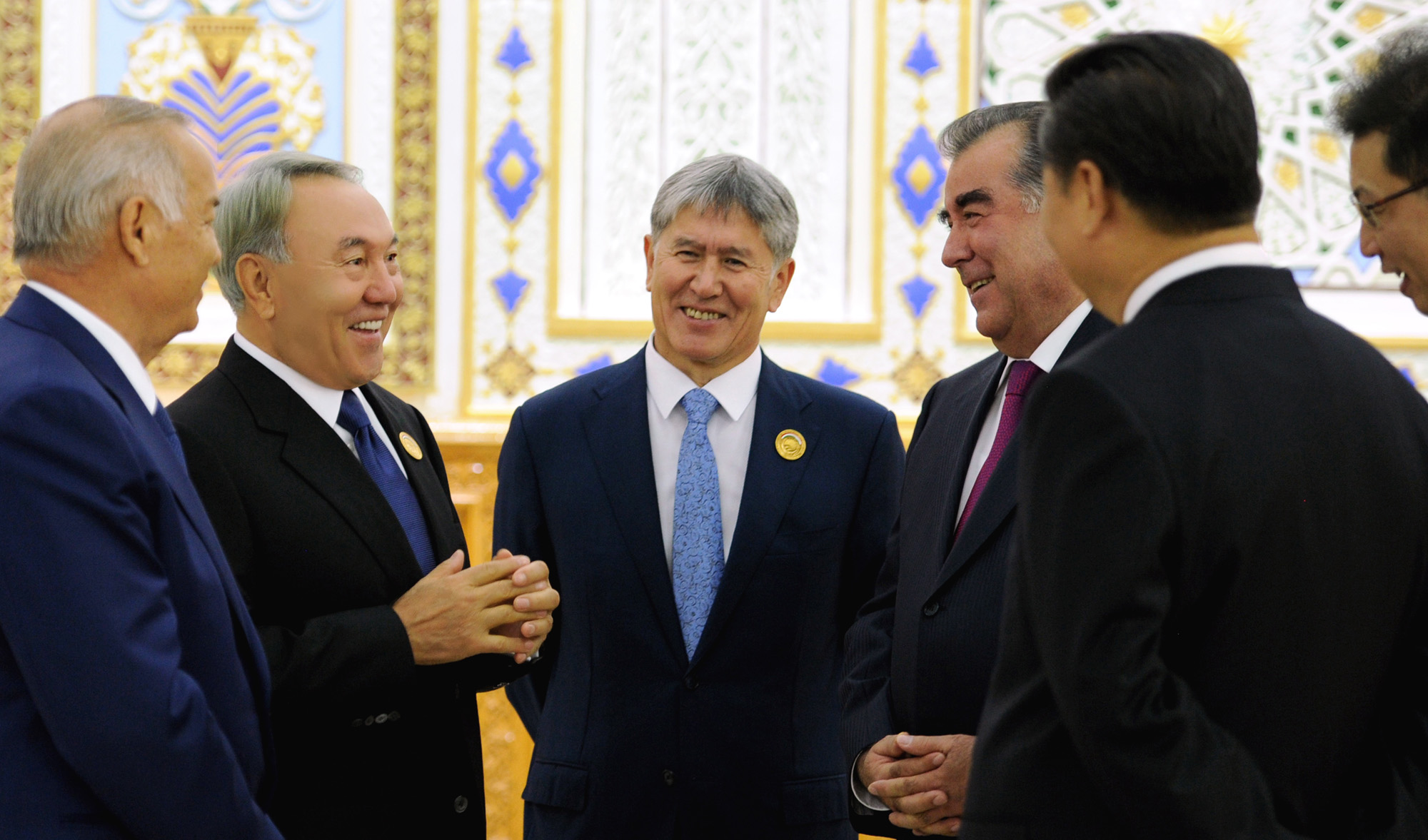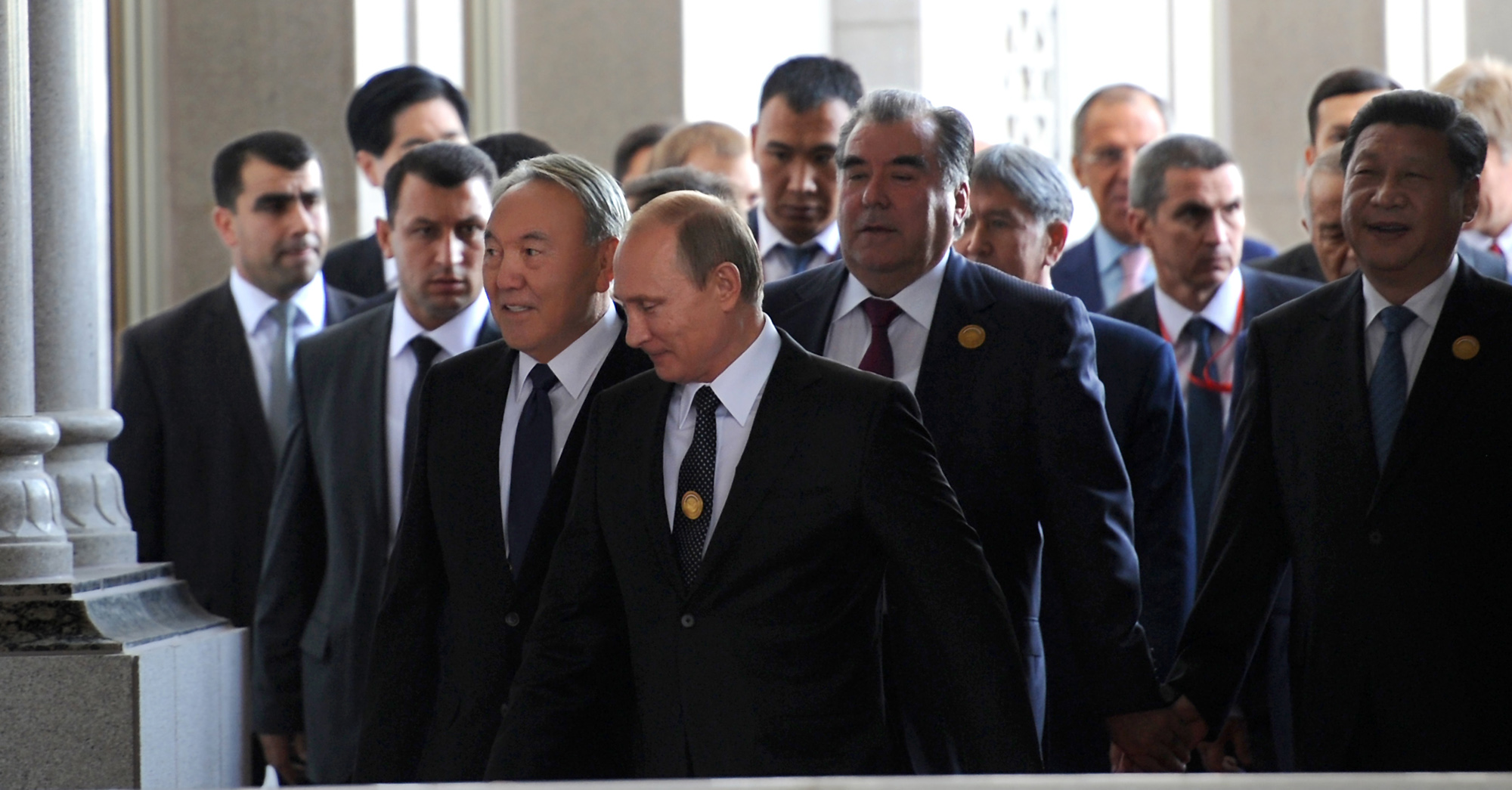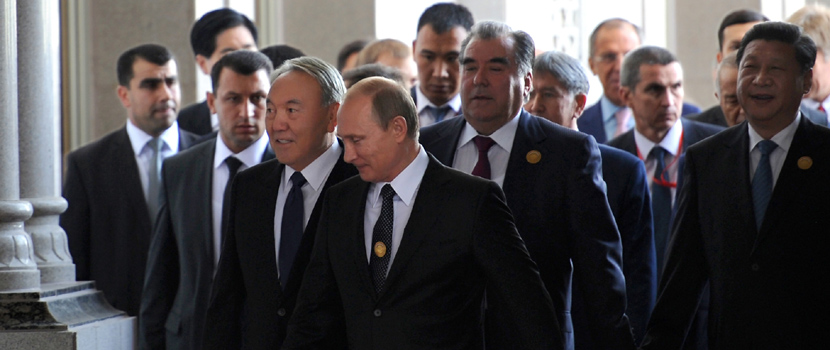The heads of the SCO member states took part in the session. Among them are President of the Peoples’ Republic of China Xi Jinping, President of Kyrgyzstan Almazbek Atambayev, President of Russia Vladimir Putin, President of Tajikistan Emomali Rahmon and President of Uzbekistan Islam Karimov.
During the session, the President of Kazakhstan defined a range of topical issues, the settlement of which should become one of the priorities for the Organisation in the unstable geopolitical and geoeconomic situation in the world.
The President called the unsettled border issues of the SCO member states as one of the main problems. President Nazarbayev drew attention to the critical importance of complying with provisions of the basic documents of the SCO – the Shanghai and Moscow agreements envisaging the strengthening of the confidence building measures and the reduction of armed forces in the border areas.
Nursultan Nazarbayev also noted that food security is an important area of economic cooperation between the SCO member states.
“According to experts, the world population will reach 9 billion people by 2050. The food production in the world will be reduced due to weather anomalies in the next 10 years. Such perspective speaks well for renewal of a discussion of the initiative, proposed by Kazakhstan, on creation of a mechanism of ensuring the food security and approval of the corresponding cooperation programme,” the head of state highlighted.
Moreover, the President also stressed that water shortage problem threats the stability and security in the region. In this regard, Nursultan Nazarbayev noted that creation of the Water Committee, proposed by Kazakhstan, could become a practical mechanism for cooperation in addressing this issue.
In conclusion, President Nazarbayev drew attention of the meeting participants to a range of problems within the framework of the SCO. In particular, the President marked the projects and initiatives that are encumbered by the divergence of the SCO priorities with the national interests of separate countries, as well as by lack of financial resources necessary for their implementation.


